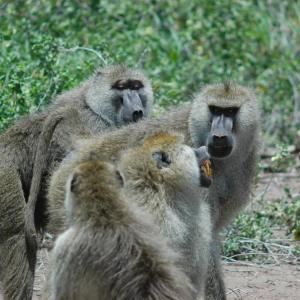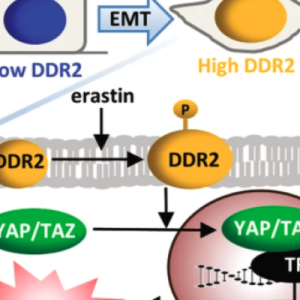A male baboon's dominance gives him babies, but costs him years
Some guys have it all: the muscle, the power, the high social status, the accelerated aging.
Duke CAGPM and Duke-NUS find Family Health History Collection Increases Chance of Cancer Carrier Detection in Genomics Era
Clinicians have historically used family health history collection as a primary method for identifying actionable disease-risk assessments. However, as large-scale genome screening programs continue to rise in popularity, the scientific community has questioned the efficacy of this traditional method, wondering at the superiority of variants identified by sequencing over family health history in identifying these risks.
Ferroptosis: An arrow into the metabolic Achilles' heel of recurrent breast cancer
Breast cancer is the second most common cancer among women in the United States. One in eight women will develop the disease. Typically, patients respond well to initial treatment, which usually includes some combination of surgery, radiation, chemotherapy and hormone treatment.
Duke researchers studying probiotic's effect on COVID-19
Researchers at Duke University are hoping to prove that a probiotic could reduce your risk of getting COVID-19, and if you do get infected, prevent you from getting severely ill.
Rawls and Wang elected to the American Academy of Microbiology
Duke scientists John Franklin Rawls, PhD, and Linfa Wang, PhD, are among 65 new fellows elected to the American Academy of Microbiology
Gbadegesin named Associate Dean for Physician-Scientist Development
OPSD is a school-wide initiative focused on the training and support of physician-scientists.
Precision Genomics Collaboratory Newsletter: Vol 1 Issue 1
The Precision Genomics Collaboratory has released its first newsletter, highlighting top genomic news stories, featured publications from members of our community, funding opportunities and more.
The Cancer Microbiome Reveals Which Bacteria Live in Tumors
Researchers clean up data to identify the bugs better
How a Fish Grows Back its Scales
Erks are the signaling protein molecules that cause cells to divide, but also tell them when to stop dividing.
Gut Microbiome Snapshot Could Reveal Chemical Exposures in Children
Study of how semi-volatile organic compounds affect bacteria and fungi reveals new relationships and bacteria used for bioremediation in children's guts






